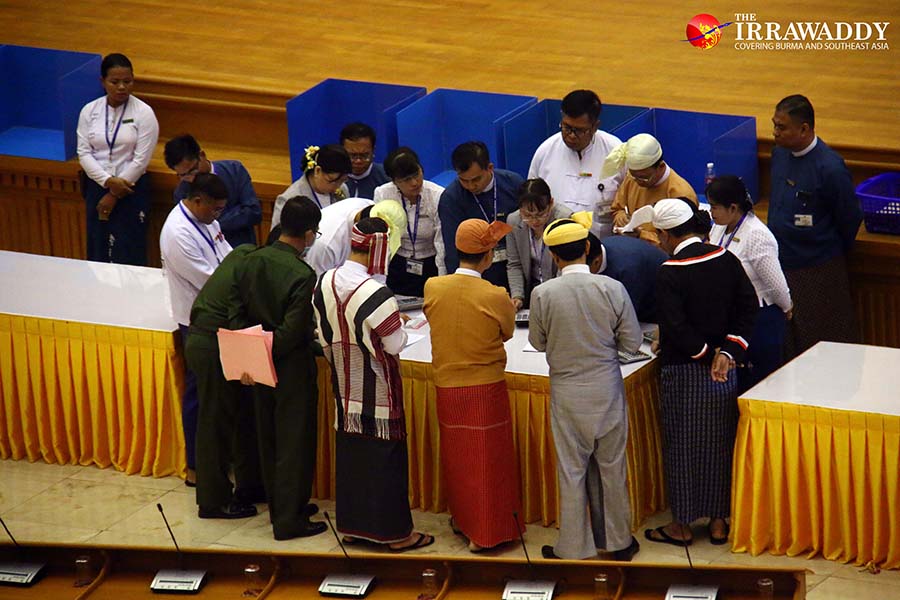YANGON—Myanmar’s military chief will continue to wield special powers during states of emergency after a series of constitutional amendments proposed by the National League for Democracy (NLD) party failed to pass on Thursday.
The military-drafted 2008 Constitution grants sovereign power to the commander-in-chief in emergencies, including the rights to exercise the powers of the legislature, executive and judiciary.
The ruling NLD party, led by Daw Aung San Suu Kyi, has sought to amend and repeal these provisions but on Thursday, during the Parliament’s third day of voting on constitutional amendments, all of the NLD’s proposals failed to gather the required support of 75 percent of lawmakers.
Under Article 412 (a) of the Constitution, the president may declare a state of emergency in any situation that could lead to the disintegration of the country or a loss of sovereign power, or if there is an attempt to take power through force, including an insurgency.
The president must coordinate with the military-dominated National Defense and Security Council (NDSC) and if all 11 members of the NSDC are unable to attend, the president must at minimum coordinate with the commander-in-chief, deputy commander-in-chief and the ministers of defense and home affairs. The president is also required to submit the state of emergency declaration to the NDSC for approval as soon as possible. The NLD proposed to repeal both provisions.

The NLD also proposed to reduce the military’s dominance on the NDSC, which includes the president, two vice-presidents (one of whom is appointed by the military), both parliamentary speakers, the commander-in-chief and deputy commander-in-chief, the minister of foreign affairs and the military-appointed ministers of defense, home affairs and border affairs. That proposal was also rejected on Wednesday.
Currently, the NLD holds 59 percent of seats in Parliament, ethnic parties hold 11 percent, the Union Solidarity and Development Party holds 5 percent and the military holds a constitutionally-mandated 25 percent.
Some say Myanmar’s 2008 Constitution is among the most rigid charters in the world, as it requires the military’s approval for any amendment, even if all elected representatives in Parliament endorse the change.
The Union Parliament began voting on constitutional amendments on Tuesday. Among the 43 proposals voted on so far, only two proposals received the required support of more than 75 percent of lawmakers. The two proposals that were approved are changes to the written term for “disabled” in Burmese.
NLD Upper House lawmaker U Aung Kyi Nyunt said he had anticipated that the attempt to change the charter might fail but that the failure was very telling.
“Not a single amendment could be made and I interpret this as a very significant finding,” he said on Wednesday. “We don’t feel downhearted. If we are to establish real democracy and federalism, there is great potential if we succeed, and if [the military] can accept amendments step by step. But now, we have an answer: that [the military] does not want even
gradual changes.”
On Friday, the Parliament will vote on 12 more constitutional amendments submitted by the NLD, including an attempt to revoke the military’s power to veto constitutional changes.
Additional reporting by Htet Naing Zaw from Naypyitaw.
You may also like these stories:
Analysis: Why Daw Aung San Suu Kyi Shunned UN General Assembly
NLD Urges Public ‘Not to Worry’ Amid Military Warnings over Charter Reform

















